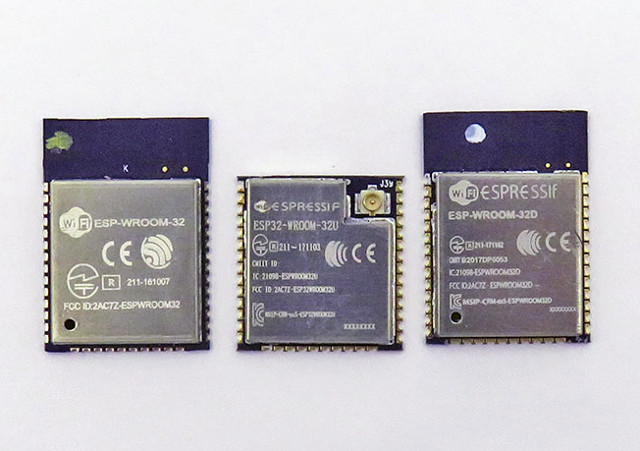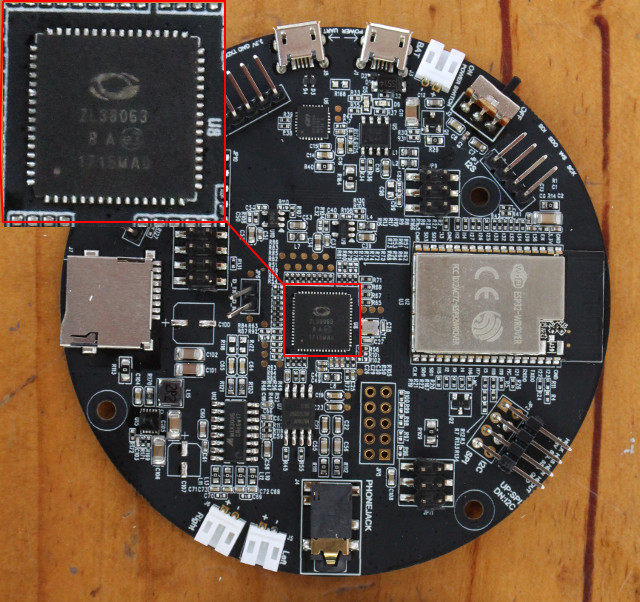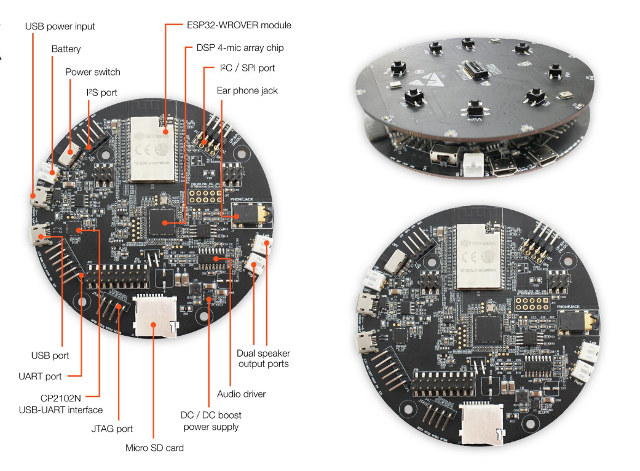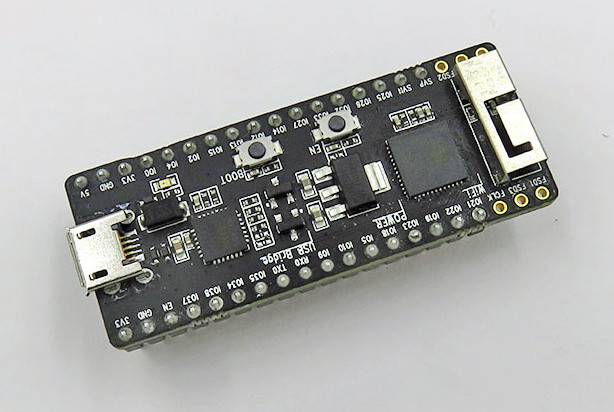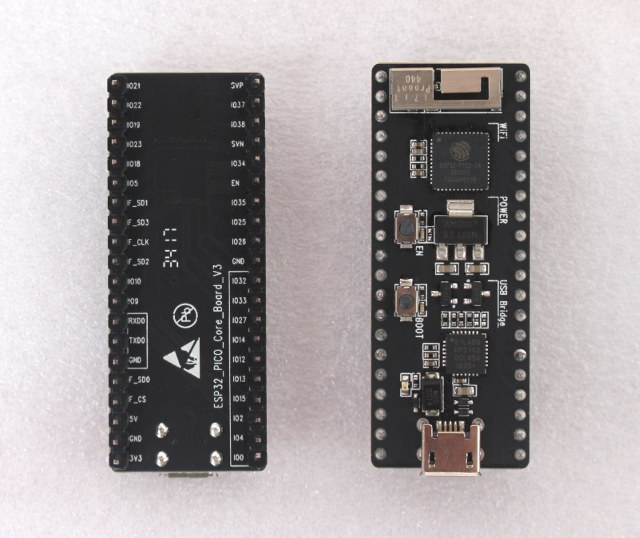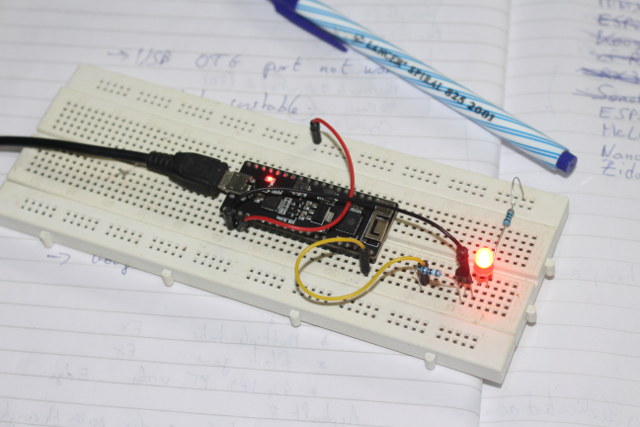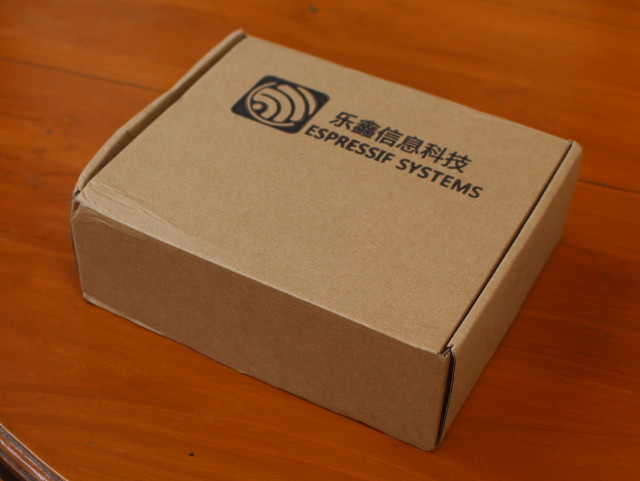ESP-WROOM-32 is likely the most popular ESP32 WiFi + Bluetooth module on the market, but a few months ago, Espressif Systems unveiled two variants named ESP32-WROOM-32D / ESP32-WROOM-32U, which are based on ESP32-D0WD (5x5mm package) instead of ESP32-D0WDQ6 (6x6mm package), and are said to offer better RF performance ESP32-WROOM-32D is the most similar to ESP-WROOM-32 since it also comes with a PCB antenna, while ESP32-WROOM-32U is much smaller as it relies on an external WiFi/Bluetooth antenna via a u.FL connector. Both new modules are pin-to-pin compatible with ESP-WROOM-32 Key features: CPU – Espressif ESP32-D0WD dual core Tensilica processor Storage – 32Mbit SPI flash Crystal – 40 MHz Connectivity – Wi-Fi 802.11 b/g/n up to 150 Mbps, Bluetooth 4.2 LE I/Os – 38- catellagated pin with I/Os + GND plane Antenna ESP32-WROOM-32D – on-board antenna ESP32-WROOM-32U – u.FL connector for external IPEX antenna Dimensions ESP32-WROOM-32D – 18 x 25.5 x 3.1 […]
A First Look at ESP32-LyraTD-MSC Audio Mic HDK with Baidu DuerOS Assistant
Earlier this year, Espressif Systems had unveiled their ESP32-LyraTD-MSC Audio MiC HDK (Hardware Development Kit) which features an ESP32-WROOM module, a 4-mic array DSP, 3 microphones, an audio jack, and various I/Os. I received the board a couple of weeks ago, and while there’s no public information released yet, the company provided me with ESP32-LyraTD-MSC User Guide in English. Eventually, I’d expect Google Assistant and Amazon Alexa to be supported, but in the meantime I had to leverage my (lowly) Chinese language skills to get started since the kit is pre-loaded with firmware connecting to Baidu DuerOS voice assistant. ESP32-LyraTD-MSC Unboxing The kit came in a bland Espressif Systems carton box. Inside the package, I could only find one kit comprised of two boards. The bottom board read ESP32_MicrosemiDSP_Mainboard-V1, and does not show much apart from marking for connectors, headers and the power switch. While the top comes with eight […]
MicroSemi ZL38063 Audio Processor is Designed for Microphone Arrays
I’ve already been experimenting with DIY smart speakers and corresponding services for example using ReSpeaker board with Microsoft Bing Speech API, or Orange Pi Zero with Google Assistant SDK. But so far all the hardware platforms I used only came with one microphone, no microphone array that help with wake word detection in noisy environments. Last week-end, I received Espressif Audio Mic HDK, an ESP32 board with a 3-microphone array which I’ll review a in a few weeks once documentation becomes available and I clear some other items in my review list. In the meantime, I checked out the hardware, and found out the mainboard also comes with Microsemi ZL38063 audio processor specifically designed for microphone array. The chip was released las year, and can be already found in the company’s AcuEdge Development Kit for Amazon AVS, but since I’m going to use a board based on ZL38063 I’d thought […]
Espressif ESP32 LyraTD MSC HDK is Designed for Smart Speakers, Wireless Audio and other Smart Home Appliances
[Update February 17, 2018: The kit was previously referred as ESP32 LyRaTD MS1, but the company appears to have changed the name to ESP32-LyRaTD-MSC] So apparently voice command will represent 50% of all searches in the next two years, and everybody is jumping on the smart speaker bandwagon, with announcements from many companies at CES 2018, including Google’s Android Things + Assistant products‘ announcement, NXP i.MX 8M official launch, Amazon Alexa Voice Service (AVS) development kit from Amlogic and Allwinner, and more. Espressif Systems is about to join the party with their ESP32 LyraTD MS1 HDK (Hardware development kit) that most people will likely remember as “Audio Mic HDK” that was announced on Twitter. Espressif Audio Mic HDK specifications: Wireless Module – ESP32-WROVER module with 802.11 b/g/n WiFi and Bluetooth 4.1 LE connectivity. DSP – 4-mic array chip Storage – micro SD card for audio files Audio Audio driver chip […]
ESP32-PICO-KIT v4 Board Based on ESP32-PICO-D4 SiP Now Available for $10
A little while ago, I received a bunch of ESP32 PICO Core development boards which were based on Espressif Systems ESP32-PICO-D4 system-in-package with ESP32, 4MB SPI Flash, and other components. The advantage of such chip is that is requires less external component, and allows for smaller designs. For example, the boards I received would leave two row of pin on each side of the board, while most other ESP32 boards will only expose one row on each side. I used the board to play with Micropython ESP32 port, and later-on when I launched a giveaway of 8 of the boards, I found out the name had changed to ESP32-PICO Kit, with the documentation listing v3 with all pins connected to male headers, and v4 with 6-pin not connected to a male header as shown in the photo below. Both versions of the board also have a different pin layout. But […]
Giveaway Week – ESP32 PICO Kit v3 Boards
I don’t have one, but eight boards to give away to four winners (2 each) with Espressif Systems ESP32 PICO Kit v3 board based on ESP32-PICO-D4 SIP, an all-in one package with ESP32, 4MB SPI flash, crystal oscillator, and passive components, which allows for smaller boards. The board is very similar to any other ESP32 boards, and software compatible, but it’s just quite thinner, and easier to work with on breadboards. Since I had already played with Arduino Core and Espruino (JavaScript) on other boards, I used one of the 10 boards provided by Espressif to play with Micropyhon on ESP32. Each winner will get two ESP32 PICO Core board in order to make it worthwhile with regards to shipping costs. To enter the draw simply leave a comment below. Other rules are as follows: Only one entry per contest. I will filter out entries with the same IP and/or […]
Getting Started with MicroPython on ESP32 – Hello World, GPIO, and WiFi
I’ve been playing with several ESP32 boards over the months, and tried several firmware images. I started with a tutorial for Arduino Core on ESP32, a few month later I tested ESP32 JavaScript programming with Espruino on ESPino32 board, and recently Espressif Systems sent me ESP32 PICO core development board powered by their ESP32-PICO-D4 SiP, and while I took some pretty photos, I had not used it so far. So I decided to go with yet another firmware, and this time, I played with MicroPython on ESP32, and will report my experience with basic commands, controlling GPIOs, and WiFi in this getting started post. Flashing Micropython Firmware to ESP32 Board Source code is available on Github, as a fork of MicroPython repo as ESP32 support has not been upstreamed yet. We could built the firmware from source, but there’s also a pre-built binary which you can download on MicroPython website. […]
A First Look at ESP32 PICO Core Development Board Powered by ESP32-PICO-D4 SiP
Last week, I wrote about ESP32-PICO-D4 system-in-package (SiP) that contains ESP32 WiSoC, 4MP SPI flash, a crystal oscilloscator and some passive components in a single 7×7 mm package in order to allow smaller designs based on ESP32. The company noticed the post, and asked me whether I’d be interested in receiving “some development boards based on ESP32 PICO”, an offer hard to refuse :), and within a couple of days I received the package below. So I ended up with 10 identical development kits, the company probably thought it was no worth paying for DHL to only send one or two development boards… The boards may also be part of some contests… We’ll see 😉 So let’s take two, and have a closer look at “ESP32_PICO_Core_Board_V3″… It comes with two rows of 20 pins with access to all I/Os, and features three main chips: ESP32-PICO-D4 SiP, AMS1117 voltage regulator, and Silabs […]


